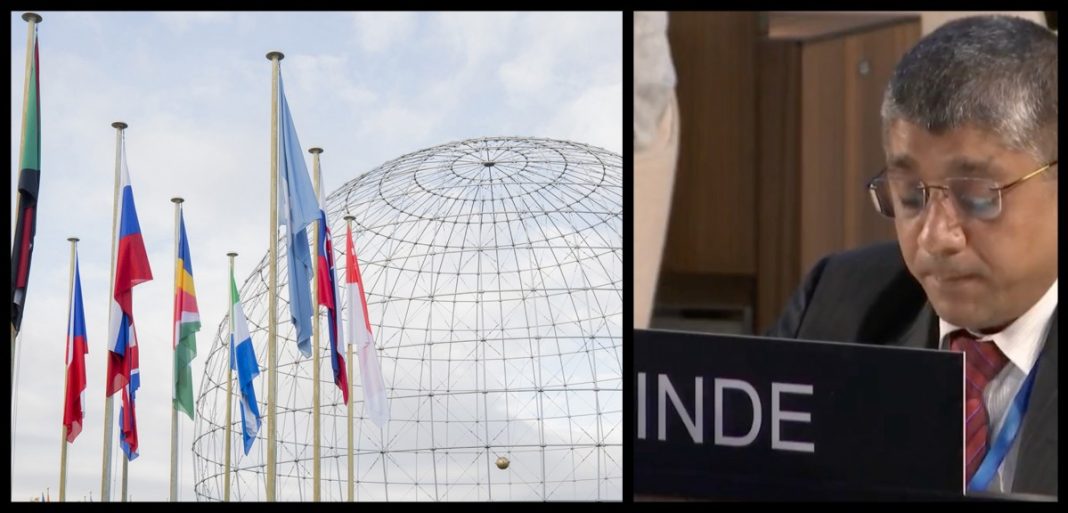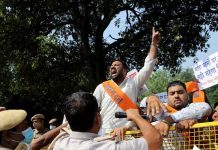DM Monitoring
New Delhi: Eyebrows have been raised over the scale of India’s defeat by Pakistan at an election for the vice-chair of the UNESCO executive board, with questions being asked on whether adequate preparations and groundwork had been done by India’s chief diplomatic representative to the multilateral body.
On November 24, Pakistan’s foreign ministry tweeted that Pakistan had been elected as vice-chair of Paris-headquartered UNESCO’s executive board “with overwhelming support from the Asia Pacific Group”. Although the tweet omitted details about the opposing candidate or the specific vote count, it is confirmed that India was the other contender, and the defeat margin was unexpectedly large: 38 to 18.
The executive board, made up of 58 member states with a four-year term, has the role of administering the UN body and appointing the director-general. It is one of the three constitutional organs of UNESCO, along with the 194-member general conference and the secretariat. In addition to the board chair, there are six vice-chairs representing the six regional or electoral groups under which all member states are categorised.
India’s permanent mission to UNESCO is led by the only political appointee to currently head an Indian diplomatic mission. Vishal V. Sharma was appointed as India’s permanent representative (PR) to the UN cultural body in October 2020 for a three year-term. He got a one-year extension on his term a month ago.
Before his appointment as permanent representative, Sharma had been known as an aide to Narendra Modi in Gujarat. His official UNESCO bio notes that he had served as officer on special duty to Modi during the latter’s term as Gujarat chief minister. He gained a certain amount of notoriety for calling Modi a ‘supercomputer’.
As The Wire had reported at time of his appointment, Sharma’s selection had been a surprise since the post of Indian PR to UNESCO had earlier been filled by an officer of the Indian Foreign Service or Indian Administrative Service on a rotational basis. The magnitude of the defeat margin is conspicuous, given India’s historical success in securing positions when fielding candidates for roles at the United Nations and other multilateral entities. Under UNESCO rules of procedure, if there is a lack of consensus regarding vice-chairs of the Board, then the election is held by secret ballot.
Informed sources said that the voting amount indicated that while India did get most of its votes from the Western bloc, most of the Global South from Asia, Africa, Arab and Latin American electoral groups seemed to have voted for Pakistan. In the UNESCO Executive Board, there are 17 countries from the Western and eastern European groups, while the other 42 members are divided among the four remaining electoral groups and broadly constitute the Global South.
The defeat is especially galling as India has been consistently projecting itself as a leader of the Global South, especially during its G20 presidency. It organised two virtual ‘Voice of the Global South’ summits during this year, asserting that the issues raised would contribute to the G20 agenda.
During the G20 summits, there were numerous posters on the roads of the Indian capital with the photo of the Indian prime minister, alongside the slogan, “Giving Voice to the Global South”.
India’s traditional approach to UN contests
A former Indian diplomat, well-versed in multilateral diplomacy, pointed out that filling posts at the UN which are reserved on geographical distribution and aligned with regional groups typically undergo a two-stage process.
First, the regional group usually takes a decision among itself to find a consensus candidate. “The effort at this stage is to persuade the regional members to only back the Indian candidate or to persuade others to withdraw. States may withdraw if they sense that they will not get votes for victory, which we would also do if we felt similarly,” he said.
If there is no consensus, then an assessment is made again based on whether the post is critical and, of course, the winnability factor. For example, India nominated Justice Dalvir Bhandari for re-election to the International Court of Justice, despite there being another regional candidate running for the same seat.
If India still decides to compete, then it requires the experience of senior Indian diplomats and election officers at the mission to adeptly navigate regional dynamics and secure enough votes through personal appeals and reciprocal arrangements.
A seasoned diplomat usually knows that it is better to undercount votes, as assurances are often given out but not acted upon. Sometimes, the assurances are asked for in writing.
This conservative approach means that India has fared exceptionally well at elections at the UN.
One senior diplomat told The Wire said that India has seen a flawless record in successfully contesting elections in New York over the last decade and beyond.
Before the November 24 election, India had last jumped into the fray for a UN post when it contested for one of the two seats allocated to the Asia Pacific Group on the UN Statistical Commission in April. The competition included China, the United Arab Emirates and South Korea. Indian officials considered the winning tally of 46 to 53 as a significant triumph.
Real loss over symbolic post
As per sources, the posts of vice-chairs at UN bodies are usually nominal. For example, the only stated role of the UNESCO Executive Board vice chairs is to administer a session, by rotation, during the chairman’s absence.
Due to their largely symbolic role, sources explained that elections for vice-chair posts are hardly contested as regional groups generally come to an understanding over a candidate.
That was obviously not the case in the election held during 218th session of the UNESCO’s executive board on November 24.
There has been no official response from the Ministry of External Affairs when asked for comment about India’s defeat at the UNESCO election to Pakistan. On his Twitter account, Sharma recently highlighted that India has been elected as the year-long chair of UNESCO World Heritage committee, which oversees the implementation of the World Heritage Convention.






